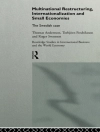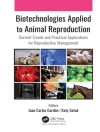Pakistan’s military, which has directly controlled the country’s affairs for more than half of its post-independence history and which often retained real political power even during periods of democratic rule, has played a significant role in trade liberalisation. Regional disparities have increased since the beginning of major trade liberalisation attempts in the 1980s and at present, regional conflicts and the associated regional disparities are extremely high. The authors critically review the country’s post-independence political economy of trade liberalisation, the resulting structural change and the story of regional disparities, identifying possible relations with political regimes. Using a regional computable general equilibrium (CGE) model, the effects of trade liberalisation on regional disparities are quantitatively examined, with an emphasis on the key export industries at a national level and on the relative output and employment growth at a regional level. In the first study to distinguish a possible link between trade liberalisation and regional disparities under dissimilar political regimes, such as autocracy and democracy, Butt and Bandara use Pakistan as a case study to draw broader lessons for other developing countries. This book will be of interest to academics, economists, political analysts and policymakers interested in development economics in general and South Asia in particular.
Jayatilleke S. Bandara & Muhammad Shoaib Butt
Trade Liberalisation and Regional Disparity in Pakistan [PDF ebook]
Trade Liberalisation and Regional Disparity in Pakistan [PDF ebook]
Mua cuốn sách điện tử này và nhận thêm 1 cuốn MIỄN PHÍ!
Ngôn ngữ Anh ● định dạng PDF ● Trang 272 ● ISBN 9780203887189 ● Nhà xuất bản Taylor and Francis ● Được phát hành 2008 ● Có thể tải xuống 6 lần ● Tiền tệ EUR ● TÔI 2299199 ● Sao chép bảo vệ Adobe DRM
Yêu cầu trình đọc ebook có khả năng DRM












